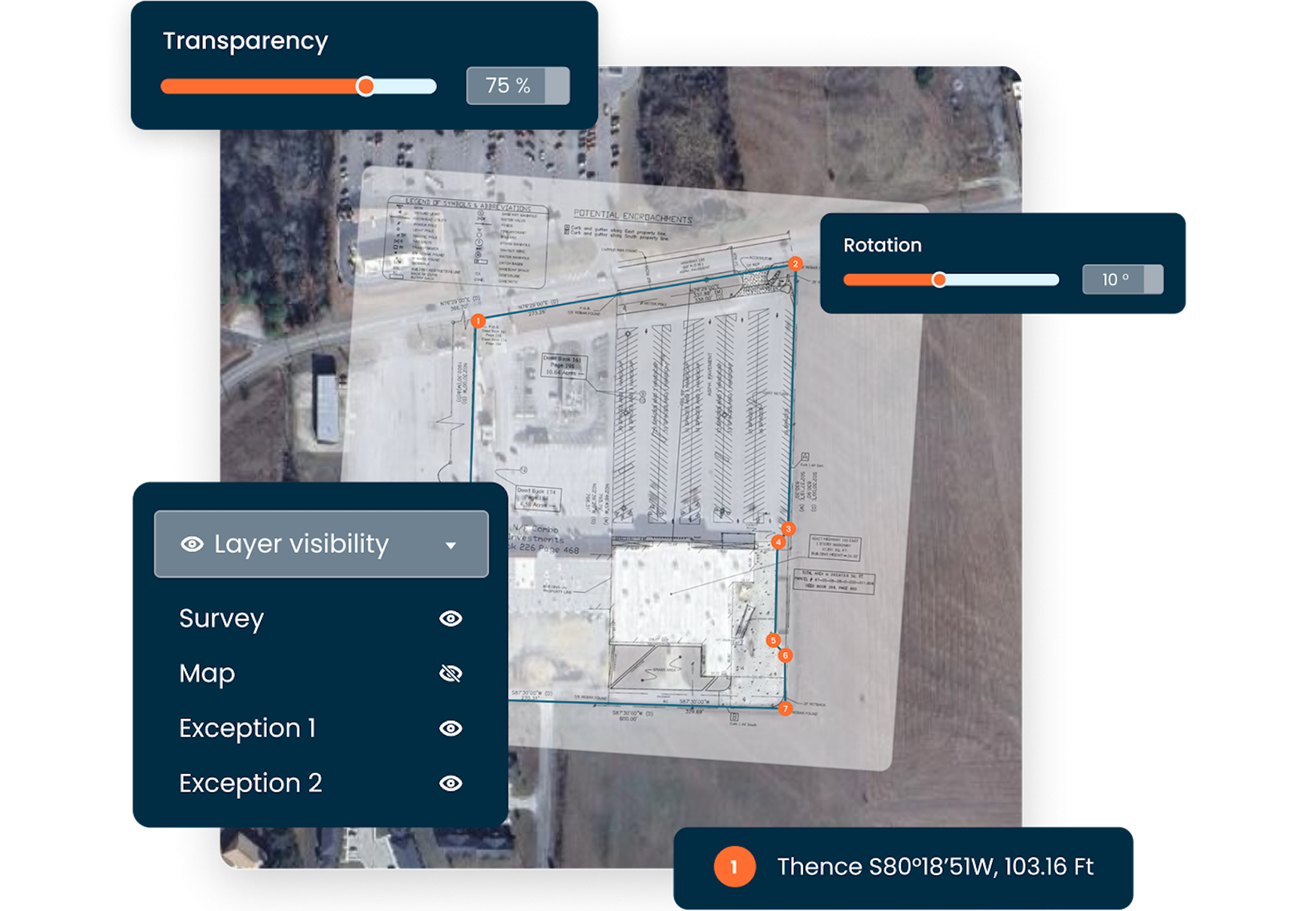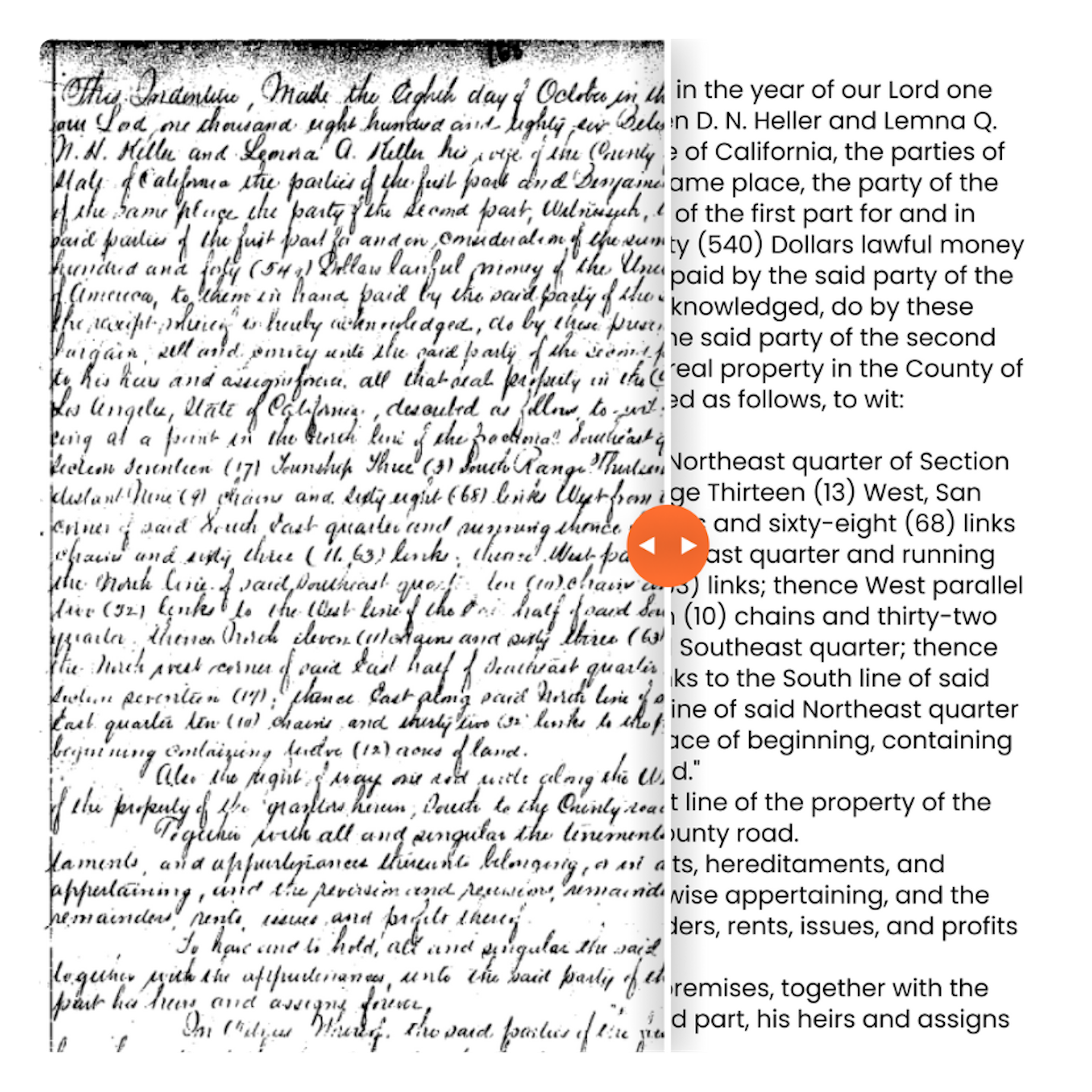By Lauren Hirt, Lead Legal Solutions Architect, Orbital
Discussions around artificial intelligence continue to dominate the legal world, and for good reason. From litigation support to contract review, AI is reshaping the legal industry by delivering new efficiencies and reducing headcount demands. In response, law firms are investing more than ever in technology. The shift is clear: Legal work is changing, and AI is at the center of that transformation.
On the surface, adopting “domain-specific” legal AI seems like an obvious win — promising efficiency and drawing on vast training data, from court opinions to regulations, contracts and even textbooks. That breadth can certainly deliver speed: scanning documents, generating summaries and flagging potential issues in minutes.
But in the highly specialized world of real estate law, is generic legal AI really enough? Or do real estate attorneys need practice-specific solutions built for the tangible, on-the-ground realities of this type of legal work?
The Inevitable Complexities of Real Estate Law
While real estate dominates globally as the world’s largest asset class ($379 trillion as of 2023, according to a report from global real estate advisory Savills), the legal processes that underpin it remain surprisingly outdated, with documents manually reviewed line by line and data scattered across fragmented systems. There’s a pervasive misconception that any legal AI tool can be used in a real estate transaction and instantly deliver results. But the truth is, not all legal AI is created equal.
When it comes to real estate legal work, investing in generic legal AI often creates the illusion of efficiency, while in reality the technology’s lack of real estate understanding shifts the burden from reviewing documents to correcting flawed output. And at a time when commercial real estate attorneys face rising transaction volumes, resource constraints and client demands for faster, more transparent due diligence, this introduces more risk than value.
From Generic Tooling to Purpose-Built for Real Estate
In the race to adopt legal AI, many law firms are focusing on speed. How quickly can a tool find and extract key information from documents? But for real estate attorneys, that’s not necessarily the only question.
Real estate transactions involve a dense web of interrelated documents — title commitments, surveys, leases, purchase and sale agreements and more — all of which demand a trained eye to spot what really matters. It isn’t just about locating information; it’s about understanding it.
This is where generic legal AI typically falls short. These tools only review documents in isolation; they can’t reliably factor in how a title commitment relates to a survey, how handwritten annotations from decades ago can carry legal consequences today or how a zoning report can shift a deal’s entire risk profile. The result is missed context and overlooked issues that a seasoned real estate attorney would immediately recognize.
Industry-level legal AI treats title and survey review as a series of isolated document analyses. But real estate attorneys must look across title commitments, exception documents and surveys together to understand and visualize how these interact and impact their client interests. Looking at these pieces in isolation creates more work, not less.
Real estate-specific AI tools, such as Orbital Copilot, are designed around real estate documents and workflows, giving them a deep understanding of the industry. They can recognize how a lease clause affects a financing agreement or how an easement buried in a set of covenants changes a development plan. This distinction is important: Real estate technology doesn’t just read documents; it interprets them like a real estate attorney would.
Beyond Text: Visualizing a Real Estate Transaction
Real estate due diligence draws on physical, historical and contextual information. Take the traditional error-prone legal description mapping process: Attorneys draw property boundaries with a pen, paper and a protractor, then manually compare their sketches to survey documents. Real estate-specific AI is optimized to plot these legal descriptions and overlay them on surveys and satellite imagery to support attorneys in identifying potential discrepancies. The technology transforms a skill that takes time to master into a streamlined digital process. At Orbital, we’ve found that this intelligence dramatically reduces time spent gathering information — up to 70% compared with traditional methods — when generating lease abstracts, reviewing loan documents or conducting a title review.
Handling complex text structures, historical records and visual documents is a core challenge in real estate law. The industry relies on a vast array of information, much of it from old, handwritten or poorly scanned documents that are notoriously difficult for standard technology to process. Traditional optical character recognition tools fail when faced with low-quality scans, handwritten amendments, strikethroughs, intricate layouts or degraded historical records. The result is hours of manual work for lawyers, who must correct errors or interpret unclear content before they can even begin substantive analysis.
Real estate-specific AI tackles this issue head-on. By combining advanced document processing with contextual understanding, tools like Orbital Copilot’s document restorer feature can intelligently reconstruct challenging records, preserving structure, meaning and legal context. The result is clean, accurate machine-readable text that AI systems can immediately work with, eliminating manual correction and accelerating attorney workflows.
How Real Estate AI Reshaped Vinson & Elkins’ Workflow
A law firm with a dedicated real estate group, Vinson & Elkins’ recent announcement of their use of Orbital Copilot demonstrates how leveraging real estate-specific AI can transform title reviews, lease abstractions and survey analysis — areas historically reliant on junior attorneys or paralegals and often subject to large variations in style and scope. By introducing real estate-specific AI, the firm reduced time spent on aligning deliverables internally and enhanced consistency, enabling legal teams to shift more of their bandwidth toward higher-value strategic work.
Another key insight from Vinson & Elkins’ adoption of real estate–specific AI is the improvement in visibility, education and client value that such tools enable. With clearer, more efficient workflows, firms can better anticipate resource bottlenecks, respond to urgent requests and manage scope creep — leading to more predictable budgets and turnaround times. Moreover, when junior lawyers are asked to review and approve AI-generated reports, the process becomes not just one of automation but of learning, preserving the development of legal judgment while increasing efficiency. This focus on both speed and professional growth underlines a mature way of integrating AI into legal workflows rather than seeing it simply as a time saver.
“Orbital Copilot supports the way we work. It’s not replacing legal judgment — it’s helping us apply it more effectively for clients. Across the team, we all benefit because Orbital Copilot is built precisely for the pace and complexity of our work.”
—Paul Martin, real estate partner, Vinson & Elkins
Orbital Copilot: Your Real Estate Legal AI Assistant
Orbital Copilot is the only AI assistant purpose-built for commercial real estate legal teams.
Built by a team of real estate legal engineers with deep practice expertise and already used across more than 150,000 real estate transactions a year, Orbital Copilot speeds up complex due diligence tasks — like title and survey reviews, plotting legal descriptions, lease abstracts and more — by up to 70% while ensuring attorney-level precision.
Trusted by leading law firms including Goodwin, BCLP and Vinson & Elkins, Orbital Copilot helps legal teams automate busywork, freeing up time to focus on high-impact legal work, delivering exceptional client service and winning more business.
Transform Your Next Deal With Real Estate-Specific AI
Join us on Oct. 23 for a 30-minute live demo of Orbital Copilot: the only AI platform built exclusively for real estate attorneys.
Register here to discover how top-performing teams use real estate-specific AI to:
- review title and survey in record time
- instantly layer surveys, plat maps and tax parcel data onto interactive maps
- generate first drafts of reports, issue lists, title objection letters and title and survey memos in minutes, with real estate–specific AI
Interested in arranging a bespoke demo for your firm today? Book here.

